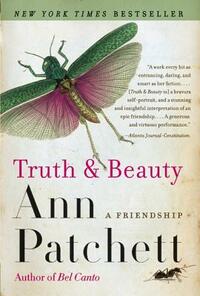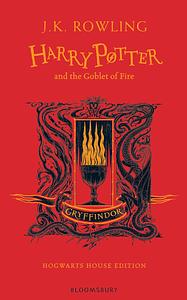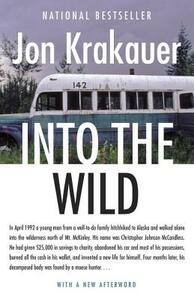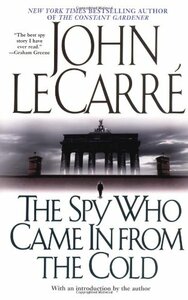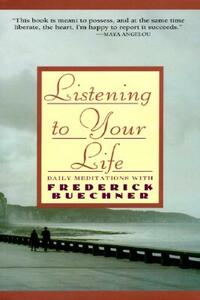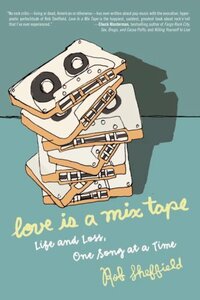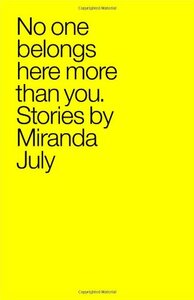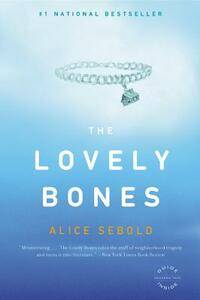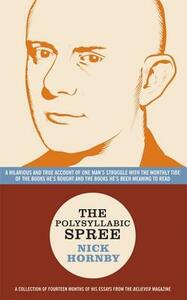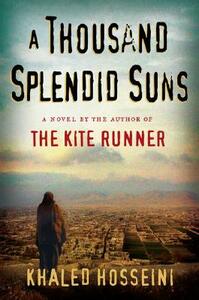Take a photo of a barcode or cover
jonscott9's Reviews (211)
The novelist pens her first work of nonfiction here with an account of her topsy-turvy life and friendship with the writer Lucy Grealy, who was first a poet and always a head-, heart-, and handful. The two met in college, lived together at the Iowa Writers Workship, and basically did life together, regardless of whether they were in the same place.
And they were not often in the same place, be it NYC vs. Nashville or love vs. self-pity. Grealy did have viable complaints in how doctors had treated her since age 10, as she had a rare cancer of the jaw bone that always meant reconstructive surgery. Her appearance was always changing; she could never get used to or accepting of her own body, of her very own face. (That is the subject of Grealy's acclaimed memoir, Autobiography of a Face, about which my interest is now piqued.)
Patchett may be a better novelist than a memoirist. I don't know, as I haven't read Bel Canto, The Patron Saint of Liars, or any of her others. This retelling of their public and private moments - of their triumphs and travails in romantic, personal, and professional realms, and in that order of seeming importance - is good and noble to honor the memory of Grealy. (She died in NYC a few years ago of a suicide or accidental overdose, depending on whom you ask.)
The book is sympathetic to Grealy largely, but Patchett's resolve admittedly waned after 12-15 years of seeing her friend's self-destructive behavior. "You know one day I'll leave you over this," she told Grealy of her heroin addiction. "Oh, I know," came the ambivalent reply.
Grealy's family, specifically her sister, has lashed out at Patchett's take on their own, and understandably. Grealy does not come off as a grateful or benevolent person in this book. Yes, she's had a uniquely rough life, and since a young age, but she's whiny, sexed-up, and generally inconsiderate of the tolls that her words and ways are taking on herself and others. Yes, she ravished friends with money and gifts. But she was also wasteful with her success and income and fame; she squandered a lot. One finishes the read thinking Patchett deserves a medal for sticking by Grealy's side as long as she did.
This book is touching and funny and devastating at times - her cancer treatments are truly horrifying - but the title seems a misnomer. Not sure what's to be gleaned from the book about truth and beauty exactly. I love reading about writers' interactions and how they feed off of each other professionally and personally, and some of that's here, but I'm not sure what's beautiful about a life that's by turns self-aggrandizing and self-destroying.
Maybe Grealy's family's beef is warranted. Maybe this didn't need to be written, at least not so soon after her demise. Still, Patchett's firsthand take is sometimes intriguing and always readable. It was never going to be enough, their friendship. Lucy Grealy's end was going to be tragic no matter what, it seemed, and because she'd have it no other way.
And they were not often in the same place, be it NYC vs. Nashville or love vs. self-pity. Grealy did have viable complaints in how doctors had treated her since age 10, as she had a rare cancer of the jaw bone that always meant reconstructive surgery. Her appearance was always changing; she could never get used to or accepting of her own body, of her very own face. (That is the subject of Grealy's acclaimed memoir, Autobiography of a Face, about which my interest is now piqued.)
Patchett may be a better novelist than a memoirist. I don't know, as I haven't read Bel Canto, The Patron Saint of Liars, or any of her others. This retelling of their public and private moments - of their triumphs and travails in romantic, personal, and professional realms, and in that order of seeming importance - is good and noble to honor the memory of Grealy. (She died in NYC a few years ago of a suicide or accidental overdose, depending on whom you ask.)
The book is sympathetic to Grealy largely, but Patchett's resolve admittedly waned after 12-15 years of seeing her friend's self-destructive behavior. "You know one day I'll leave you over this," she told Grealy of her heroin addiction. "Oh, I know," came the ambivalent reply.
Grealy's family, specifically her sister, has lashed out at Patchett's take on their own, and understandably. Grealy does not come off as a grateful or benevolent person in this book. Yes, she's had a uniquely rough life, and since a young age, but she's whiny, sexed-up, and generally inconsiderate of the tolls that her words and ways are taking on herself and others. Yes, she ravished friends with money and gifts. But she was also wasteful with her success and income and fame; she squandered a lot. One finishes the read thinking Patchett deserves a medal for sticking by Grealy's side as long as she did.
This book is touching and funny and devastating at times - her cancer treatments are truly horrifying - but the title seems a misnomer. Not sure what's to be gleaned from the book about truth and beauty exactly. I love reading about writers' interactions and how they feed off of each other professionally and personally, and some of that's here, but I'm not sure what's beautiful about a life that's by turns self-aggrandizing and self-destroying.
Maybe Grealy's family's beef is warranted. Maybe this didn't need to be written, at least not so soon after her demise. Still, Patchett's firsthand take is sometimes intriguing and always readable. It was never going to be enough, their friendship. Lucy Grealy's end was going to be tragic no matter what, it seemed, and because she'd have it no other way.
Okay, now it's getting good. In this fourth installment, the reader starts to discern that Rowling is taking the series ultimately to a gratifying, climactic head that will be worth having read the first three volumes.
And these are just that - volumes. HP4 here clocks at 734 pages, and I see already that HP5 is 870. Guh! In this age of ADD-riddled adolescents, who has the time and patience to read a book that long? (This ADD-addled one doesn't.) But, well, this isn't the heavy stuff of Thomas Pynchon, so we can allot Rowling her page counts. Lord knows the publishers did.
The distraction in this book is the Triwizard Tournament that brings in (good grief!) more characters from two other wizarding schools, French and Slovak if you must know. It's funny to see present-day geography repped in these books; the accents are comically and phonetically presented, and a dimwitted witch finds herself in Albania and reaps the consequences after running into You-Know-Who.
The conclusion of HP4 is satisfying though the series is hardly over. One fairly major character does not make it out of this book, and while I knew that going in actually, the departure is sure abrupt.
The usual suspects are coming into their own. Hermione and Ron are great as Harry's boy and girl wonders, funny and biting by turns. Dumbledore and Snape are always becoming more fully realized, though McGonagall seems slighted as each volume goes by. (Maybe she gets more play in the three to come?) And the latest Defense Against the Dark Arts instructor, Mad-Eye Moody, is a great add. (Of course he can't last.)
My lone gripe here: Rowling uses too many ellipses. I know it's a small gripe, but it's distracting when, in most places, a comma would have been mighty fine.
Regardless, the show marches on like the giant it is.
And these are just that - volumes. HP4 here clocks at 734 pages, and I see already that HP5 is 870. Guh! In this age of ADD-riddled adolescents, who has the time and patience to read a book that long? (This ADD-addled one doesn't.) But, well, this isn't the heavy stuff of Thomas Pynchon, so we can allot Rowling her page counts. Lord knows the publishers did.
The distraction in this book is the Triwizard Tournament that brings in (good grief!) more characters from two other wizarding schools, French and Slovak if you must know. It's funny to see present-day geography repped in these books; the accents are comically and phonetically presented, and a dimwitted witch finds herself in Albania and reaps the consequences after running into You-Know-Who.
The conclusion of HP4 is satisfying though the series is hardly over. One fairly major character does not make it out of this book, and while I knew that going in actually, the departure is sure abrupt.
The usual suspects are coming into their own. Hermione and Ron are great as Harry's boy and girl wonders, funny and biting by turns. Dumbledore and Snape are always becoming more fully realized, though McGonagall seems slighted as each volume goes by. (Maybe she gets more play in the three to come?) And the latest Defense Against the Dark Arts instructor, Mad-Eye Moody, is a great add. (Of course he can't last.)
My lone gripe here: Rowling uses too many ellipses. I know it's a small gripe, but it's distracting when, in most places, a comma would have been mighty fine.
Regardless, the show marches on like the giant it is.
An adventure tale that, to me, is just the right size at about 200 pages. Chris McCandless was an idealistic college grad who resented his parents, gave away his life savings of $24,000, and hitchhiked around North America and finally up to the Alaskan wilderness to find himself and something higher. He read the right people (Tolstoy, Thoreau, et al.), lived like John Muir, and just operated outside of a lot of our society's confines. I would have liked to meet him. He left indelible impressions on all whose roads intersected with his.
This book moves fast, as did the man himself. Krakauer's style reminds me of Erik Larsson's in 'Devil in the White City.' Larsson writes better, and Krakauer's very much the magazine journalist he was before these books of his erupted. He's detailed and witty, good at transitions. He does well to acquire the young man's journal from the voyage and has obviously interviewed at length the parents, sister, friends, and highway acquaintances of the lad. Those excerpts and quotes go far. If the people truly said those things, and like that, it's an eloquent bunch.
The book flows like one of those crashing streams McCandless tried to cross to save himself in the North. It's hard to put down and can be read in a day, even by a snailish reader like me. Krakauer's comparisons to his own restless, embittered coming-of-age story fit well and make for more convincing writing. You can see why he took to McCandless's story.
Chris (aka Alexander Supertramp) was smart, gifted, wild, loving, and ultimately maddening. His family really seems to have gotten a raw deal in the whole thing, and yet they want his story to be told. You know what's coming, but it doesn't make it any easier to take.
This book moves fast, as did the man himself. Krakauer's style reminds me of Erik Larsson's in 'Devil in the White City.' Larsson writes better, and Krakauer's very much the magazine journalist he was before these books of his erupted. He's detailed and witty, good at transitions. He does well to acquire the young man's journal from the voyage and has obviously interviewed at length the parents, sister, friends, and highway acquaintances of the lad. Those excerpts and quotes go far. If the people truly said those things, and like that, it's an eloquent bunch.
The book flows like one of those crashing streams McCandless tried to cross to save himself in the North. It's hard to put down and can be read in a day, even by a snailish reader like me. Krakauer's comparisons to his own restless, embittered coming-of-age story fit well and make for more convincing writing. You can see why he took to McCandless's story.
Chris (aka Alexander Supertramp) was smart, gifted, wild, loving, and ultimately maddening. His family really seems to have gotten a raw deal in the whole thing, and yet they want his story to be told. You know what's coming, but it doesn't make it any easier to take.
Le Carre's classic was "the best spy story [Graham Greene] ever read," so it had much to live up to. It delivers, but not as you may expect. And isn't that just like a spy? If you're looking for Bond-esque action and steam or chases in the vein of Jason Bourne (or Bourne movies anyway), thou shalt be disappointed. But if you're game for mind tricks and double-crossing and all the true accoutrements of what goes into espionage, this read has those in spades.
It's amazing what this author packs into roughly 200 pages. It's dialogue-driven, so know that. The talking flows, though, and it doesn't tell more than it should. Of course there's an affair (Liz Gold), a villain (the fiendish Mundt), and the helpful crony spy (Fiedler), but Alec Leamas is largely alone in this book, even when he's with other people.
The life of a spy is bleak and unattractive, as are the lessons gleaned from this book. Probably no author knows that bleakness better than John le Carre, who worked in British intel before becoming an author and penning this Cold War-era classic. Of course he gives the characters his own thoughts to express about the Cold War, a split-up Germany, and socialism/communism, but it's not heavy-handed and, dated though it may seem, it's timeless.
In short, Leamas does what he must to execute one more master plan, that being to bring about nemesis Mundt's ruin and ultimate end. It really ramps up at the end, giving a photo finish to a spy who, despite having this last go, does his best to come him from the cold. Well worth the read from a man on top of his craft. Interest is piqued now to read his Constant Gardener.
It's amazing what this author packs into roughly 200 pages. It's dialogue-driven, so know that. The talking flows, though, and it doesn't tell more than it should. Of course there's an affair (Liz Gold), a villain (the fiendish Mundt), and the helpful crony spy (Fiedler), but Alec Leamas is largely alone in this book, even when he's with other people.
The life of a spy is bleak and unattractive, as are the lessons gleaned from this book. Probably no author knows that bleakness better than John le Carre, who worked in British intel before becoming an author and penning this Cold War-era classic. Of course he gives the characters his own thoughts to express about the Cold War, a split-up Germany, and socialism/communism, but it's not heavy-handed and, dated though it may seem, it's timeless.
In short, Leamas does what he must to execute one more master plan, that being to bring about nemesis Mundt's ruin and ultimate end. It really ramps up at the end, giving a photo finish to a spy who, despite having this last go, does his best to come him from the cold. Well worth the read from a man on top of his craft. Interest is piqued now to read his Constant Gardener.
This book is just what the title says, a daily reader from one of the richest, warmest voices still living in literature. These morsels of solid food for mind and heart will see many days even after the dear man is gone too.
No bones about it, Frederick Buechner is my favorite living author. He simply has a way of putting things that moves me to action and repose at the same time, to both internal contentment and stark rage at the world's pains and injustices. Having his tomes at hand to glance at or pore over is one way I stay sane and positive. Come what may, Buechner's elegant, sometimes archaic language churns like butter before my eyes.
This compact read includes excerpts from most of his major works, including the exquisite, Pulitzer-nominated Godric, a novel. For what it's worth, it also comes with Maya Angelou's stamp of approval, as the two are friends. I think of Angelou and Buechner, Capote and Harper Lee, and more: Nothing beats those times when great voices find friendship.
No bones about it, Frederick Buechner is my favorite living author. He simply has a way of putting things that moves me to action and repose at the same time, to both internal contentment and stark rage at the world's pains and injustices. Having his tomes at hand to glance at or pore over is one way I stay sane and positive. Come what may, Buechner's elegant, sometimes archaic language churns like butter before my eyes.
This compact read includes excerpts from most of his major works, including the exquisite, Pulitzer-nominated Godric, a novel. For what it's worth, it also comes with Maya Angelou's stamp of approval, as the two are friends. I think of Angelou and Buechner, Capote and Harper Lee, and more: Nothing beats those times when great voices find friendship.
“We were just a couple of fallen angels, rolling the dice of our lives. We’d heard all the horror stories of early marriages and fast divorces and broken hearts. But we knew none of them would happen to us, because as Dexy’s Midnight Runners sang to Eileen, we were far too young and clever. What if we just decide not to fall apart?"
I was first taken by the rock critic Rob Sheffield's style and tone in his Rolling Stone reviews. Whether or not I agree, I just like the way he writes. So I decided to pick up this little jam of a memoir built on the solid rock of real romance that perched above the shifting sands in his life that are popular music.
Rob and Renée, his wife of five years or so, had a beautiful, easy chemistry. Neither knew that one would become a widower in such a short time. It hardly spoils anything to tell that Renée suffered a pulmonary embolism that had her gone in a minute, and Sheffield constructs his chapters around the mix tapes that they made together and for each other during their courtship and married life.
So many spots appear in the book where Sheffield could have gone sentimental or gushy, but he maintains the tone of a grieving, realistic man almost without fail. He's also nothing if not self-aware about the powers of music: "[Personics] was just another temporary technological mutation designed to do the same thing music always does, which is allow emotionally warped people to communicate by bombarding each other with pitiful cultural artifacts that in a saner world would be forgotten before they even happened.”
Along the way Sheffield of course ruminates about certain songs and artists, often to hilarious effect (see the section where he and Renée thought up names for their would-be synth-pop duo). These digressions always find their way back, as do his spot-on song and film references.
Sheffield remarks that no wisdoms or revelations come to the one grieving the loss of a lover, but he provides some thoughts just short of astute himself, and via the subtly funny and tragic vehicles of Jacqueline Kennedy ("the most famous widow of all, our Elvis, our Muhammad Ali") and his elders ("Aunt Peggy refused to allow indoor plumbing right up to her dying day, which was in 1987. Whenever anybody suggested indoor plumbing, she always said, ‘Sure, we’ll be drowned in our beds!’").
You emerge on the other side of this read with a genuine desire to know and befriend the dear Renée. You feel the loss right along with the author. Nothing more can be asked of the reader, so he doesn't. What Sheffield does do is pull no punches in this sad but sober retelling of "life and loss, one song at a time."
I was first taken by the rock critic Rob Sheffield's style and tone in his Rolling Stone reviews. Whether or not I agree, I just like the way he writes. So I decided to pick up this little jam of a memoir built on the solid rock of real romance that perched above the shifting sands in his life that are popular music.
Rob and Renée, his wife of five years or so, had a beautiful, easy chemistry. Neither knew that one would become a widower in such a short time. It hardly spoils anything to tell that Renée suffered a pulmonary embolism that had her gone in a minute, and Sheffield constructs his chapters around the mix tapes that they made together and for each other during their courtship and married life.
So many spots appear in the book where Sheffield could have gone sentimental or gushy, but he maintains the tone of a grieving, realistic man almost without fail. He's also nothing if not self-aware about the powers of music: "[Personics] was just another temporary technological mutation designed to do the same thing music always does, which is allow emotionally warped people to communicate by bombarding each other with pitiful cultural artifacts that in a saner world would be forgotten before they even happened.”
Along the way Sheffield of course ruminates about certain songs and artists, often to hilarious effect (see the section where he and Renée thought up names for their would-be synth-pop duo). These digressions always find their way back, as do his spot-on song and film references.
Sheffield remarks that no wisdoms or revelations come to the one grieving the loss of a lover, but he provides some thoughts just short of astute himself, and via the subtly funny and tragic vehicles of Jacqueline Kennedy ("the most famous widow of all, our Elvis, our Muhammad Ali") and his elders ("Aunt Peggy refused to allow indoor plumbing right up to her dying day, which was in 1987. Whenever anybody suggested indoor plumbing, she always said, ‘Sure, we’ll be drowned in our beds!’").
You emerge on the other side of this read with a genuine desire to know and befriend the dear Renée. You feel the loss right along with the author. Nothing more can be asked of the reader, so he doesn't. What Sheffield does do is pull no punches in this sad but sober retelling of "life and loss, one song at a time."
“Not everyone has to be literate, there are some great reasons for resisting language, and one of them is love.”
So goes the lilting logic in Miranda July's self-fashioned world of wonder and regret and pain and hilarity. One wishes continually when flipping through this book that he could be part of her microcosm. Playing observer to the tragicomic plights of her characters is damn good fun, though.
The wrenching-yet-light "The Shared Patio" leads off, sufficiently whelming from the start. July renders the fine line between utter sadness and true joy to a blur. It's the bearable lightness of being that gets her characters through, and that maybe gets her through too. One can see how these short stories are a form of self-therapy for the scribe.
And what a whimsical pen it is that she wields:
“That is my problem with life, I rush through it, like I’m being chased. Even things whose whole point is slowness, like drinking relaxing tea. When I drink relaxing tea, I suck it down as if I’m in a contest for who can drink relaxing tea the quickest. Or if I’m in a hot tub with some other people and we’re all looking up at the stars, I’ll be the first to say, It’s so beautiful here. The sooner you say, It’s so beautiful here, the quicker you can say, Wow, I’m getting overheated.”
I am hardly doing her justice. Even so, a recap of a few of the tall, lean tales she weaves: "The Man on the Stairs" is actually spellbinding stuff in the vein of Roald Dahl or Edgar Allen Poe (no, really). "The Sister" is chuckle-inducing before and after it is immensely sad. "Making Love in 2003" is perhaps the most taut of the longer stories, and July hilariously introduces the children's fantasy writer Madeleine L'Engle as one of her characters (it's not really her, and L'Engle herself actually just left our swiftly tilting planet in 2007).
The people populating these stories are flawed and fabulous. You want to know them all, even the disagreeable ones. Through the sharp eyes and tart tongues of her creations, July relays her thoughts on love, romance, pain, and more. Her takes on friendship are most real and convincing of a lot of real and convincing statements. She simply adds a real lightness to the weight of being human. We could all learn from that.
“Are you angry? Punch a pillow. Was it satisfying? Not hardly. These days people are too angry for punching. What you might try is stabbing. Take an old pillow and lay it on the front lawn. Stab it with a big pointy knife. Again and again and again. Stab hard enough for the point of the knife to go into the ground. Stab until the pillow is gone and you are just stabbing the earth again and again, as if you want to kill it for continuing to spin, as if you are getting revenge for having to live on this planet day after day, alone.”
So goes the lilting logic in Miranda July's self-fashioned world of wonder and regret and pain and hilarity. One wishes continually when flipping through this book that he could be part of her microcosm. Playing observer to the tragicomic plights of her characters is damn good fun, though.
The wrenching-yet-light "The Shared Patio" leads off, sufficiently whelming from the start. July renders the fine line between utter sadness and true joy to a blur. It's the bearable lightness of being that gets her characters through, and that maybe gets her through too. One can see how these short stories are a form of self-therapy for the scribe.
And what a whimsical pen it is that she wields:
“That is my problem with life, I rush through it, like I’m being chased. Even things whose whole point is slowness, like drinking relaxing tea. When I drink relaxing tea, I suck it down as if I’m in a contest for who can drink relaxing tea the quickest. Or if I’m in a hot tub with some other people and we’re all looking up at the stars, I’ll be the first to say, It’s so beautiful here. The sooner you say, It’s so beautiful here, the quicker you can say, Wow, I’m getting overheated.”
I am hardly doing her justice. Even so, a recap of a few of the tall, lean tales she weaves: "The Man on the Stairs" is actually spellbinding stuff in the vein of Roald Dahl or Edgar Allen Poe (no, really). "The Sister" is chuckle-inducing before and after it is immensely sad. "Making Love in 2003" is perhaps the most taut of the longer stories, and July hilariously introduces the children's fantasy writer Madeleine L'Engle as one of her characters (it's not really her, and L'Engle herself actually just left our swiftly tilting planet in 2007).
The people populating these stories are flawed and fabulous. You want to know them all, even the disagreeable ones. Through the sharp eyes and tart tongues of her creations, July relays her thoughts on love, romance, pain, and more. Her takes on friendship are most real and convincing of a lot of real and convincing statements. She simply adds a real lightness to the weight of being human. We could all learn from that.
“Are you angry? Punch a pillow. Was it satisfying? Not hardly. These days people are too angry for punching. What you might try is stabbing. Take an old pillow and lay it on the front lawn. Stab it with a big pointy knife. Again and again and again. Stab hard enough for the point of the knife to go into the ground. Stab until the pillow is gone and you are just stabbing the earth again and again, as if you want to kill it for continuing to spin, as if you are getting revenge for having to live on this planet day after day, alone.”
This suburban tragedy reaches its climax in the first chapter, but it's not all downhill from there. A young teen is brutally attacked by a neighbor, and for the rest of the novel, she looks down (from somewhere) on her family as they cope with the loss, and on that neighbor as he seeks to cover his tracks. It's suspenseful but credible: You could see this happening anywhere.
I was at a loss as to what to make of a late-breaking encounter between the murdered girl, Susie, and her friend Ray, but the rest of it holds up.
Though more so in her memoir Lucky, Sebold no doubt drew on her own experience as a rape victim in college to write this first novel. The book has a certain cadence to it that keeps you engrossed. You simply want to know how it ends.
The last page had me sitting in silence for a few minutes after finishing it. Quite the closing lines.
I was at a loss as to what to make of a late-breaking encounter between the murdered girl, Susie, and her friend Ray, but the rest of it holds up.
Though more so in her memoir Lucky, Sebold no doubt drew on her own experience as a rape victim in college to write this first novel. The book has a certain cadence to it that keeps you engrossed. You simply want to know how it ends.
The last page had me sitting in silence for a few minutes after finishing it. Quite the closing lines.
This is a compendium of a year's worth of Hornby's columns about books bought and/or read in The Believer magazine. The tone is colloquial like whoa, a bit skittish. Hornby, who's penned About A Boy and A Long Way Down, among other novels, is (unlike much of what he attempts to read) high readable himself. This little jam of a book flies over 140 pages.
Yes, it is fun to commiserate with a for-real writer who laments things like being given book recommendation (or, worse, being gifted books outright):
“Usually, of course, I treat personal book recommendations with the suspicion they deserve. I’ve got enough to read as it is, so my first reaction when someone tells me to read something is to find a way to doubt their credentials, or to try to dredge up some conflicting view from my memory. (Just as stone always blunts scissors, a lukewarm “Oh, it was OK,” always beats a “You have to read this.” It’s less work that way.)”
The title comes from the moniker he's given an imaginary (or are they?) squad of Believer mag honchos who issue edicts to him as to how he will write his column. (One stipulation: Abandon any book that's not going well, and DO NOT mention it by name.) He imagines them in flowing robes, 12 of them (6 of each gender of course); of course this is meant to drum up the Polyphonic Spree, those be-robed indie choir rockers, as Hornby (also author of Songbook and High Fidelity; need I say more?) is some kind of music snob.
This book (I was -- gasp -- gifted it!) is hardly necessary but sometimes insightful and often amusing. Poignant and yet funny are his thoughts on books about autism; his own son has the condition. He gushes over Dickens and Vonnegut and more, interspersing some poems and excerpts he loves amidst his own columns/chapters.
Here's Hornby on novels, their epic and lengthy qualities:
“But there comes a point in the writing process when a novelist—any novelist, even a great one—has to accept that what he is doing is keeping one end of a book away from the other, filling up pages, in the hope that these pages will move, provoke, and entertain the reader.”
And on how one can Wiki his way to impressing others:
“A good chunk of coming across as educated, after all, is just a matter of knowing who wrote what: someone mentions Patrick Hamilton, and you nod sagely and say, Hangover Square, and that’s usually enough. … ‘the truly cultured are capable of owning thousands of unread books without losing their composure or their desire for more.’”
I honestly feel better on the other side of thumbing through this read. That's what he intended, and that's what matters.
Yes, it is fun to commiserate with a for-real writer who laments things like being given book recommendation (or, worse, being gifted books outright):
“Usually, of course, I treat personal book recommendations with the suspicion they deserve. I’ve got enough to read as it is, so my first reaction when someone tells me to read something is to find a way to doubt their credentials, or to try to dredge up some conflicting view from my memory. (Just as stone always blunts scissors, a lukewarm “Oh, it was OK,” always beats a “You have to read this.” It’s less work that way.)”
The title comes from the moniker he's given an imaginary (or are they?) squad of Believer mag honchos who issue edicts to him as to how he will write his column. (One stipulation: Abandon any book that's not going well, and DO NOT mention it by name.) He imagines them in flowing robes, 12 of them (6 of each gender of course); of course this is meant to drum up the Polyphonic Spree, those be-robed indie choir rockers, as Hornby (also author of Songbook and High Fidelity; need I say more?) is some kind of music snob.
This book (I was -- gasp -- gifted it!) is hardly necessary but sometimes insightful and often amusing. Poignant and yet funny are his thoughts on books about autism; his own son has the condition. He gushes over Dickens and Vonnegut and more, interspersing some poems and excerpts he loves amidst his own columns/chapters.
Here's Hornby on novels, their epic and lengthy qualities:
“But there comes a point in the writing process when a novelist—any novelist, even a great one—has to accept that what he is doing is keeping one end of a book away from the other, filling up pages, in the hope that these pages will move, provoke, and entertain the reader.”
And on how one can Wiki his way to impressing others:
“A good chunk of coming across as educated, after all, is just a matter of knowing who wrote what: someone mentions Patrick Hamilton, and you nod sagely and say, Hangover Square, and that’s usually enough. … ‘the truly cultured are capable of owning thousands of unread books without losing their composure or their desire for more.’”
I honestly feel better on the other side of thumbing through this read. That's what he intended, and that's what matters.
Oh, bloody -- in more ways than one. One who's read The Kite Runner (and I am one) knows what he's getting into by opening this follow-up novel. The estro-version of the former book here stars tragediennes Miriam and Laila, both born into peril and pain and, somehow, happiness, and both married off to Rasheed for different, unfortunate reasons. Theirs is a Naomi-and-Ruth tale of similar biblical proportions. Afghanistan in the 1980s, '90s, and into the 21st century was no woman's friend. These two band together to diffuse their husband's pent-up rage at the war-ravaged hard times, at the political and economic upheaval blazing around them.
They know they cannot blunt his wounded maniacal self forever. Rasheed is one ugly dude. If Assef from Kite Runner rubbed you raw, Rasheed is something like seeing Assef go home to wives and children. He's patriarchal Afghan brutality at the most local level. Much blood and many tears are shed in the book. It's violent and sad and lovely, just how Hosseini likes it.
Thankfully it's more believable -- the tragedies, the pleasures, all of it -- than it was in Kite Runner. Where that book erred in relaying a host of contrived coincidences, this one's more realistic. It's essentially Miriam's story, starting and then returning at the end to her poor, beautiful childhood. How she manages and then meets her end in the book makes it a redeemable read.
The plot is quite predictable, and Hosseini recycles his bland mantra from Kite Runner ("There is a way"). I wanted to quit the book at two different times but stuck it out. I'm mostly glad I did. It finishes well, perhaps too well for what's happened. The last 30 or so pages seem a half-baked, hasty coda to what's transpired, culminating in what is basically the epilogue for Laila & Co.
Hosseini certainly had plenty of strife (international, regional, national, local strife) to mine for this, and as the book moves as far forward as 9/11 and thereafter. I won't likely read anything else from this author -- I get it: war is hell -- but in the end I'm not sorry I read this. He is a gifted storyteller, though not a terribly good writer.
If I want some Persian lit from now on, I'll check out Rumi.
They know they cannot blunt his wounded maniacal self forever. Rasheed is one ugly dude. If Assef from Kite Runner rubbed you raw, Rasheed is something like seeing Assef go home to wives and children. He's patriarchal Afghan brutality at the most local level. Much blood and many tears are shed in the book. It's violent and sad and lovely, just how Hosseini likes it.
Thankfully it's more believable -- the tragedies, the pleasures, all of it -- than it was in Kite Runner. Where that book erred in relaying a host of contrived coincidences, this one's more realistic. It's essentially Miriam's story, starting and then returning at the end to her poor, beautiful childhood. How she manages and then meets her end in the book makes it a redeemable read.
The plot is quite predictable, and Hosseini recycles his bland mantra from Kite Runner ("There is a way"). I wanted to quit the book at two different times but stuck it out. I'm mostly glad I did. It finishes well, perhaps too well for what's happened. The last 30 or so pages seem a half-baked, hasty coda to what's transpired, culminating in what is basically the epilogue for Laila & Co.
Hosseini certainly had plenty of strife (international, regional, national, local strife) to mine for this, and as the book moves as far forward as 9/11 and thereafter. I won't likely read anything else from this author -- I get it: war is hell -- but in the end I'm not sorry I read this. He is a gifted storyteller, though not a terribly good writer.
If I want some Persian lit from now on, I'll check out Rumi.
